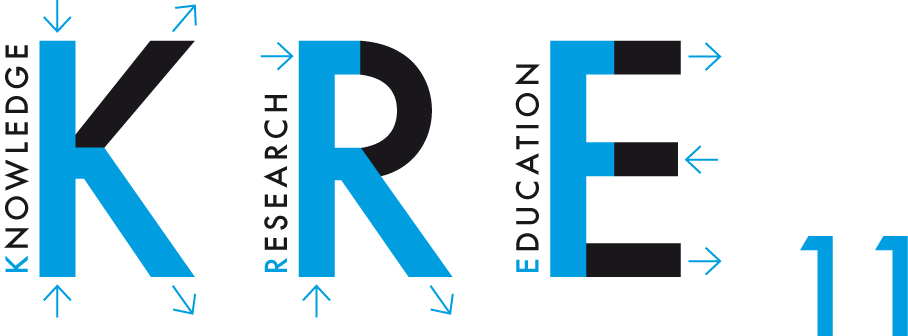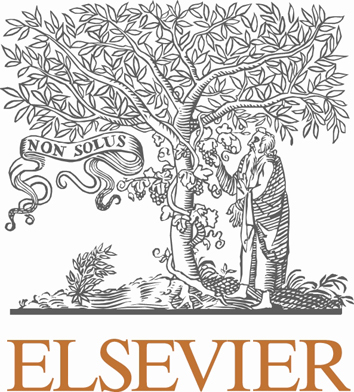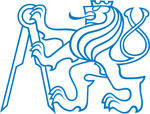International Conference KRE 11
The National Library of Technology under the auspices of the Deputy Minister of Education, Youth and Sports Ivan Wilhelm and in cooperation with the Czech Technical University and Institute of Chemical Technology in Prague organizes the international conference KRE 11 (Knowledge, Research and Education).
On September 9th, 2009 the Czech National Library of Technology in Prague opened the doors of its state-of-the art new building. A year later, to commemorate this grand event, we launched our first in an annual series of conferences devoted to the crossroads between Knowledge, Research and Education. It was a terrific success and we plan to repeat it again this year: the topic of our 24 hour meeting this coming September 9th is research metrics. Our wish is to draw attention to the often controversial mechanisms for evaluating the results of research and their subsequent impact on its continued financing and institutional support. We believe that in times of economic difficulties it is all the more important to seek reasonable and fair methods that would foster research as a necessary condition of future economic growth and of a flourishing higher education.
Our conference (hosting all together about 90 guests) brings together university dignitaries, senior members of the faculty, library staff and publishing industry with the purpose of facilitating discussion of research trends and policies that inform their respective fields of interest and that we all share. Typically, we have five to six key note lectures that cover a variety of perspectives, both domestic and international, on the topic at hand, and plenty of room for informal meetings and conversations.
Martin Svoboda, Director of National Library of Technology
Program
Thursday, September 8th
Registration and Information desk 11:00 - 16:50
Cloakroom11:00 - 18:30
chair: Martin Lhoták, Library of Academy of Sciences, CZ
13:00 – 13:15
Martin Svoboda, National Library of Technology, CZ
Jan Hrušák, Ministry of Education, Youth and Sports , CZ
Opening Addresses
13:15 – 14:00
James V. Staros, Ph.D., Provost & Senior Vice Chancellor for Academic Affairs Professor, Department of Biochemistry & Molecular Biology University of Massachusetts, Amherst, USA
Evaluating Research at Levels from National to Institutional
14:00 - 14:45
Štěpán Jurajda, CERGE-EI, CZ
Common mistakes in the application of bibliometric information in the Czech Republic
14:45 - 15:15
Coffee Break
15:15 - 16:00
Erik Arnold, Technopolis, UK
16:00 - 16:45
Nancy Foster, University of Rochester, MA, USA
Participatory Design of Academic Libraries
Social program - Thursday, September 8th
17:00 - 17:50
Excursion of the National Library of Technology
18:00
meeting in the library foyer – departure for Mid-time Reception with two vintage trams to Prague city center
19:00 - 23:30
Mid-time Reception at Municipal HouseFriday, September 9th
Registration and Information desk 8:00 - 10:30
Cloakroom 8:00 - 13:00
8:30 - 9:00
Coffee, snacks
chair: Martin Svoboda, National Library of Technology, CZ
9:00 - 9:30
Joep Verheggen, Elsevier Science, NL
A short story about multi-dimensional research assessment and SciVal applications
9:30 - 10:00
Jeff Clovis, Thomson-Reuters, USA
10:00 - 10:45
Jaroslav Machan, ŠKODA AUTO, a. s., CZ
Experience of R&D cooperation between the academic and industrial sectors10:45 - 11:15
Coffee break
11:15 - 12:50
Panel Discussion12:50
Conclusion11:00 – 11:20
přestávka, občerstveníLectures & Speakers
Erik Arnold: Measuring Health in Research and Innovation Systems: The Czech Research Audit in International Context
Presentation pptx (291 kB), pdf (410 kB)
Abstract:
National Research and Innovation Systems are complex and their health is difficult to measure. A growing number of countries have tried to review and diagnose their own systems through approaches such as the OECD Innovation Policy Reviews, 'Policy Mix' peer reviews at EU level, large national studies or evaluations of major actors such as research councils. This presentation will set out some of the key findings of the recent Czech Research Audit in an international context and reflect on the needed mix of qualitative and quantitative analysis.
Erik Arnold is the Chairman of the Technopolis Group and Professor of International Innovation at the university of Twente. He has been working in research and innovation policy since the start of the 1980s. He led the recent audit of the Czech research system. Other reviews of interest where he has played a major role include: evaluations of the Research Council of Norway, the Austrian Industrial Research Promotion Fund (FFF) the Austrian Science Fund (FWF) and the National Natural Science Foundation of China; OECD Innovation Policy reviews of South Africa and Norway; policy mix reviews of France and Latvia; evaluation of the Sixth Framework Programme.
Jeff Clovis: Assessing faculty productivity and institutional research performance: Using publication and citation key performance indicators
Abstract:
Institutions must demonstrate return on investment in all areas, including sponsored research. This presentation will cover various bibliometric indicators used to measure research performance, including article output, citation count, h-index, citation impact, etc. Assessment at the institutional, as well as researcher level will also be discussed.
We will begin with a discussion by Thomson Reuters about how universities used citation metrics for research evaluation. Universities, government bodies, and corporations must decide what research should be supported and what should not, or which research projects and researchers should receive more support than others. Increasingly, universities must demonstrate their special capabilities to a variety of constituencies. Most universities must identify a mission, develop a strategy for meeting it, and market themselves to students and supporters. Indeed, every university must have a clear, evidence-based understanding of the institution’s performance towards its goals and mission. This understanding is achieved and maintained through ongoing evaluation.
Trained as a biologist and then a Germanic language specialist and translator, Jeff Clovis has been working in the field of Information Sciences for the past thirty years at Thomson Reuters (formerly ISI and Thomson Scientific), holding a variety of positions for this period, mainly in Editorial Development, Product Production, Business and Technology Planning, Product Development, Business Development and finally Customer Education & Sales Support.
He was jointly responsible for: the design of the Image based production system used in processing all journals and conference proceedings, the development of Web of Science and the Derwent Innovations Index, as well as responsible for the addition and development of BIOSIS Previews and CAB Abstracts from CABI Publishing on the Web of Knowledge platform.
He is currently Senior Director, Customer Education & Sales Support and in this position is responsible for supporting all Web products and content available for Academic & Government markets in North America, Latin America, Europe, the Middle East & Africa – including all new tools and content added to the platform and all customer education activities for the Americas, Europe, the Middle East and Africa.
Nancy Foster: Participatory Design of Academic Libraries
Presentation pptx (4,2 MB), pdf (1,4 MB)
Abstract:
Participatory design is a process by which the people who will use a space, a service, or a tool are involved in its conceptualization and development. Traditionally, a narrow range of experts, such as architects, engineers, or computer scientists, decided what people needed and how it would be built. Even today, library buildings and especially catalogs and other library technology are built in this traditional way, and this is why they are often so hard to use. The alternative is to consider that the people who use libraries are experts in an important sense: they are expert in how they do research. In academic libraries, the participatory design process allows us to capture information about how people do scholarly work and how that work may best be supported. In this talk, I will argue for the quality and value of the information we gather as part of the participatory design process. I will explain how we collect information through photo elicitation, mapping activities, workshops and traditional interviews; how it can help us understand the academic work process and how people learn of and obtain information; and how libraries and universities can use such design processes to help their researchers do their best work and their students make the most of their academic opportunities.
Nancy Fried Foster has a Ph.D. in Applied Anthropology from Columbia University and a Diploma in Social Anthropology from the University of Oxford. She has conducted anthropological research in Brazil, Guyana, Venezuela and Papua New Guinea and in educational and not-for-profit organizations in the US and UK. Currently the Director of Anthropological Research in for University of Rochester’s library system, she facilitates participatory design, mainly of large-scale software development projects but also of space design projects.
Štěpán Jurajda: Common mistakes in the application of bibliometric information in the Czech Republic
Presentation ppt (1,6 MB), pdf (727 kB)
Abstract:
I review the existing evidence on the productivity of Czech science (by field) based on bibliometric data, point to typical mistakes made in recent evaluation exercises and analyses, illustrate these using examples typically drawn from social sciences, and offer a few tentative bibliometric facts myself.
Štěpán Jurajda serves as joint Director of CERGE, Charles University, and of the Economics Institute of the Academy of Sciences of the Czech Republic (EI). He graduated from the Prague School of Economics in 1992 in Econometrics and Operations Research and received his M.A. and Ph.D. degrees in Economics from the University of Pittsburgh in 1995 and 1997, respectively. In 1997, he became Assistant Professor of Economics at CERGE-EI, where he served as Deputy Director for Research during 2000-2001 and 2005-2007. During 1999-2000, he was Visiting Research Fellow at Princeton University, Department of Economics, Industrial Relations Section. He is also affiliated with CEPR, London, and IZA, Bonn. In 2004 he defended his habilitation in economics at the Faculty of Social Sciences of Charles University, received the Otto Wichterle Prize for young scientists awarded by the Academy of Sciences of the Czech Republic, and was awarded tenure at CERGE-EI. Between 2005 and 2010, he served as member of the Executive Committee of the European Association of Labour Economists. He regularly publishes in prestigious international high-impact factor journals and serves as a referee for 20 such journals. During 2008-2010 he was a member of the Expert Committee for Humanities and Social Sciences at the Research and Development Council of the Czech Government and since 2009 he is a member of the expert steering committee of the International Audit of Czech R&D&I, an OP-funded IPn project of the Czech Ministry of Education.
Jaroslav Machan: Experience of R&D cooperation between the academic and industrial sectors
Presentation pdf (2,4 MB)
Abstract:
The fast process of globalisation and, as a result, the increasing pressures of worldwide competition require intensification of cooperation between the academic and industrial sectors at both national and multinational levels. The presentation outlines selected topics and identifies areas that should develop such cooperation and make it more effective as the next step. Primarily, these include: Selected factors limiting cooperation on the academic side, Deficiencies in the methods of approaching joint projects, Different ideas of time constants in joint projects, Clearly set key responsibilities of the respective worksites, Possible factors of reinforcing the cooperation.
Furthermore, the presentation outlines ŠKODA Auto Development Department experience of cooperation with the academic sector in joint projects, specifically: R&D projects funded from non-public resources (ŠA's direct contracts, contracts of VW Research), R&D projects funded from public resources (EU, Czech Republic), Training & education projects funded from public resources (esf).
After graduating from the University in 1975, Associate Prof. Jaroslav Machan started working at the Research institute of the machine tools in Prague. Since 1979, he has held various positions in Škoda Auto Company. The most important among them are: 1984 head of dynamic testing-laboratory, 1994 head of technical calculation, since 1996 head of the development department of electric and electronics and since 2003 he has been in charge of special projects in electro-strategy and research. He successfully defended in 2008 his inaugural dissertation dealing with "Quality assurance methods applied at the product development stage – application in automotive industry" at the Czech Technical University in Prague, Faculty of transportation sciences and received the associate professor degree (docent) in the field of the "Engineering informatics in transportation and communications". One year later in 2009 he was certified 4th Grade "QFD Architect".
James V. Staros: Evaluating Research at Levels from National to Institutional
Presentation pptx (637 kB), pdf (647 kB)
Abstract:
Choosing appropriate research metrics is critically important whether one is responsible for research evaluation at the national level, institutional level, or the even the level of the individual researcher. I will discuss how research metrics are employed in several influential national research evaluation systems in the United States, how peer review is employed in the distribution of national research funding, and how individual institutions can evaluate their research programs to better align them with available funding and with national rankings.
James V. Staros currently serves as Provost and Senior Vice Chancellor for Academic Affairs of the University of Massachusetts Amherst, where he is also Professor of Biochemistry & Molecular Biology. He holds the Ph.D. in Molecular Biophysics & Biochemistry from Yale University, was a postdoc at Harvard University, and served on the faculties of Vanderbilt University and Stony Brook University before joining UMass –Amherst in 2009. His experience in research and research evaluation includes 1) that of Principal Investigator of some 90 grant-years of peer-reviewed funding from US federal agencies such as NIH and NSF and from philanthropies such as the HHMI, 2) service on numerous national peer review panels, and 3) evaluation of institutional priorities in research and scholarship as chief academic officer of UMass-Amherst.
Joep Verheggen: A short story about multi-dimensional research assessment and SciVal applications
Presentation pptx (3,9 MB), pdf (4,4 MB)
Abstract:
Research assessment is a abroad endeavour. At the root it is an attempt to measure the return on investment in scientific –scholarly research. Research assessment includes the evaluation of research quality and measurements of research inputs, outputs and impacts and embraces both qualitative and quantitative methodologies. In his talk the presenter provides a concise overview of developments in research assessment and evaluation practices and will address a conceptual model for multi-dimensional research assessment. He will further address Elsevier’s involvement in research management through its “SciVal” portfolio of research performance, - planning and - funding applications. The presenter will demonstrate how this portfolio can meaningful contribute to both national/regional and institutional assessment exercises. He will subsequently provide a number of examples to illustrate how Governments and/or HE Institutions and organisations like Elsevier can collaborate to improve the quality of Research Management and the assessment exercise process.
Joep Verheggen graduated in 1989 at the University of Utrecht (Department of Earth Sciences) in the Netherlands, he joined Elsevier in 1991 and held both Editorial and Product management positions in Life sciences and Physical Sciences. Since 1996 he has been involved in Elsevier’s major innovation activities, initially as project manager and later as Business Development Director Life sciences (based in London, UK) and subsequently as Director of ScienceDirect, Elsevier’s e-publishing platform. In 2009, he was appointed Vice President and Senior Research Advisor, focussing on strategic partnerships. In January 2011 he was asked to lead the Global SciVal Consultants Team and formulate and execute the Global Sales strategy for this new strategic innovation.
Registration
Registration has ended.
Useful information
Participants are asked to make their own travel arrangements.Transport from the airport
From the airport, you can reach the National Library of Technology by bus or taxi.By bus:
Bus 119 departs from Vaclav Havel airport approximately every 5-20 minutes between 5 a.m. to 0:30 p.m. from Terminal 1 and stops near the entrance to subway line A's Dejvická station. The ride takes approximately 25 minutes and costs 24 CZK. You can also use the special bus AE linka (Airport Express) that stops at the same place (40 CZK).By taxi:
We recommend you to take a taxi with an official licence (AAA or 111 taxi). Taxis take about 10 minutes to arrive to Dejvice and cost around 300 CZK.More information: http://www.dpp.cz/en/public-transit-to-ruzyne-airport/
Transport from the central station and the bus station
From the central railway station and the bus station Florenc, use the red subway line C towards Háje and transfer at Muzeum to green line A in the direction of the end station Dejvická. From there, follow the signs to the library/Czech Technical University campus.
Transport to the city center
Getting downtown from the conference is easy and convenient - using subway line A, it's just three stops to Staroměstská and five stops to Muzeum.
There are three kinds of tickets: the all-day ticket (110 CZK) is valid for 24 hours. Single trip tickets are available for 75 minutes (32 CZK) or 30 minutes (24 CZK) - be sure to validate your ticket when you enter the subway. The tickets are valid for the entire public transportation network including subway, bus, tram - and even the cable car to Petřín hill. They can be purchased in the self-service machines, at some underground stations, tobacconist shops and some newspaper kiosks.
More information: http://www.dpp.cz/en/
Accommodation
Participants are asked to make their own hotel arrangements. Some hotels near the conference venue:
Hotel DAP (Dům Armády Praha)
Address: Vítězné náměstí 684/4, 160 00 Praha 6 - Dejvice
Tel. + 420 973 211 444, + 420 973 211 422
http://www.daphotel.cz
Hotel Denisa
Adresa: Národní obrany 33, 160 00 Praha 6 - Dejvice
Tel. + 420 224 318 969
http://www.hotel-denisa.cz
Diplomat Hotel Praha
Address: Evropská 15, 160 41 Praha 6 - Dejvice
Tel. + 420 296 559 212, + 420 296 559 178, + 420 296 559 213
http://www.diplomathotel.cz/cz/home
Hotel International Prague
Address: Koulova 15, 160 45 Praha 6 - Dejvice
Tel. + 420 296 537 111
http://www.internationalprague.com
Masarykova kolej (hostel)
Address: Thákurova 1, Praha 6 - Dejvice
Tel. + 420 233 051 111
http://www.studenthostel.cz/
Other useful information
The Conference Hall has 196 seats in the auditorium and 50 seats in the balcony. All the seats in the auditorium (except the first row) offer power and data sockets.





